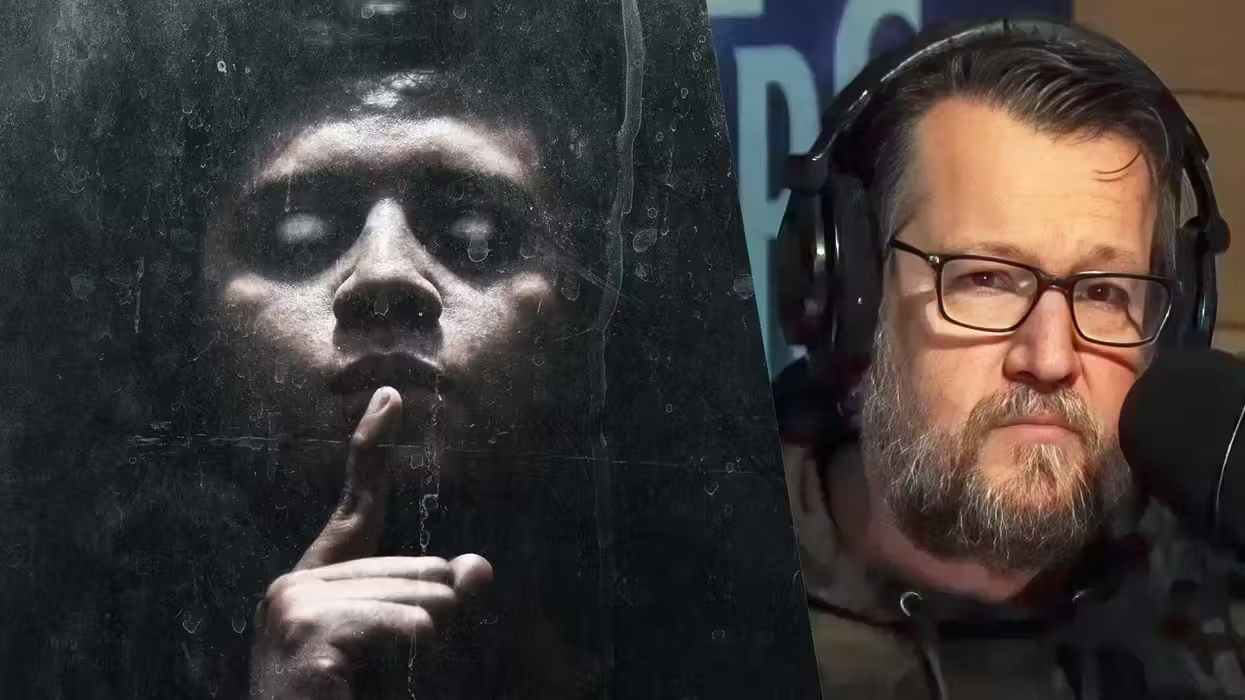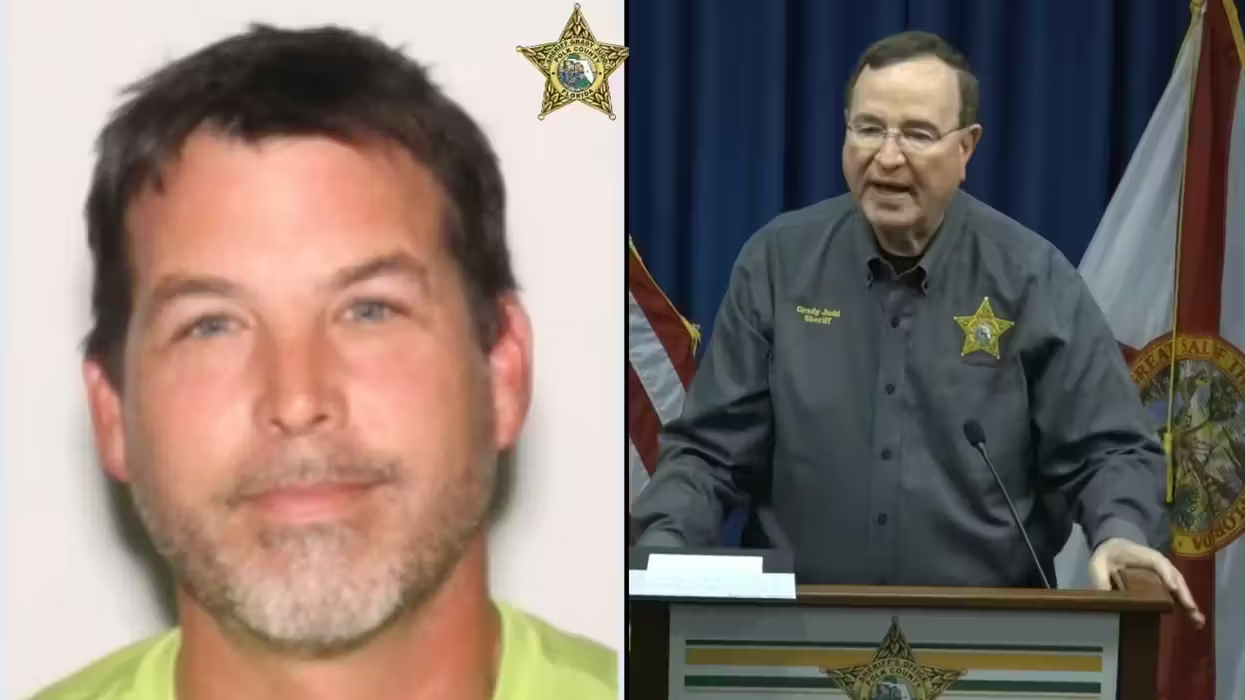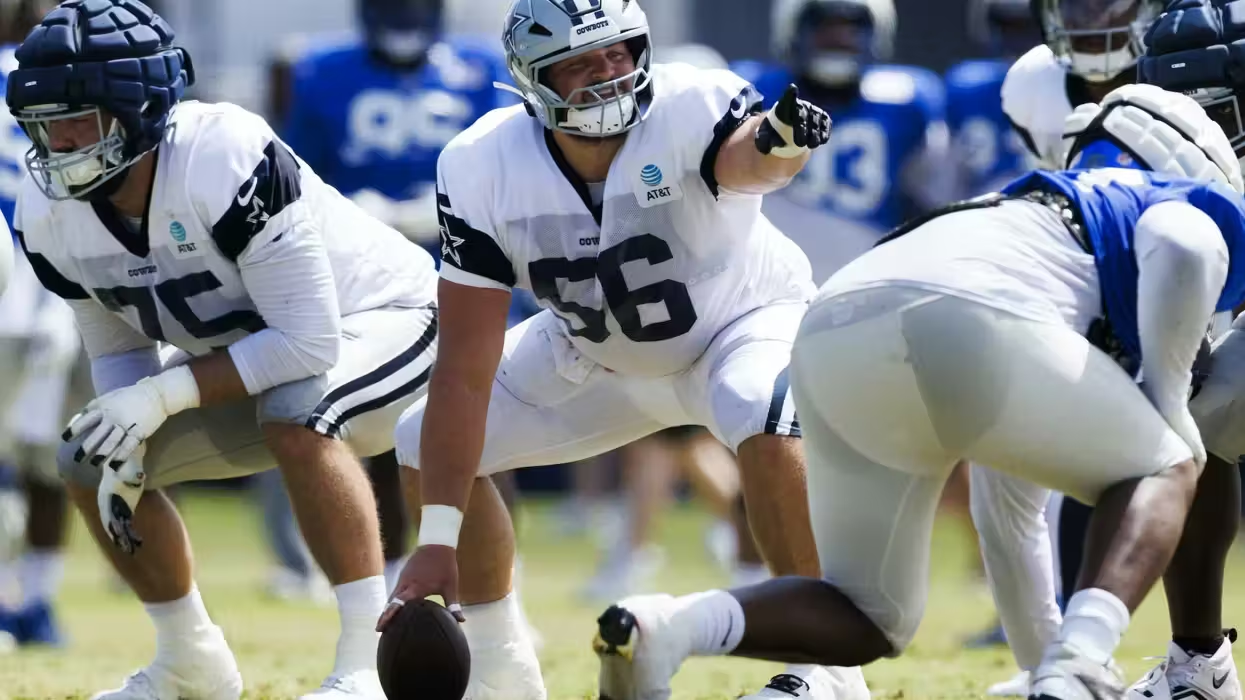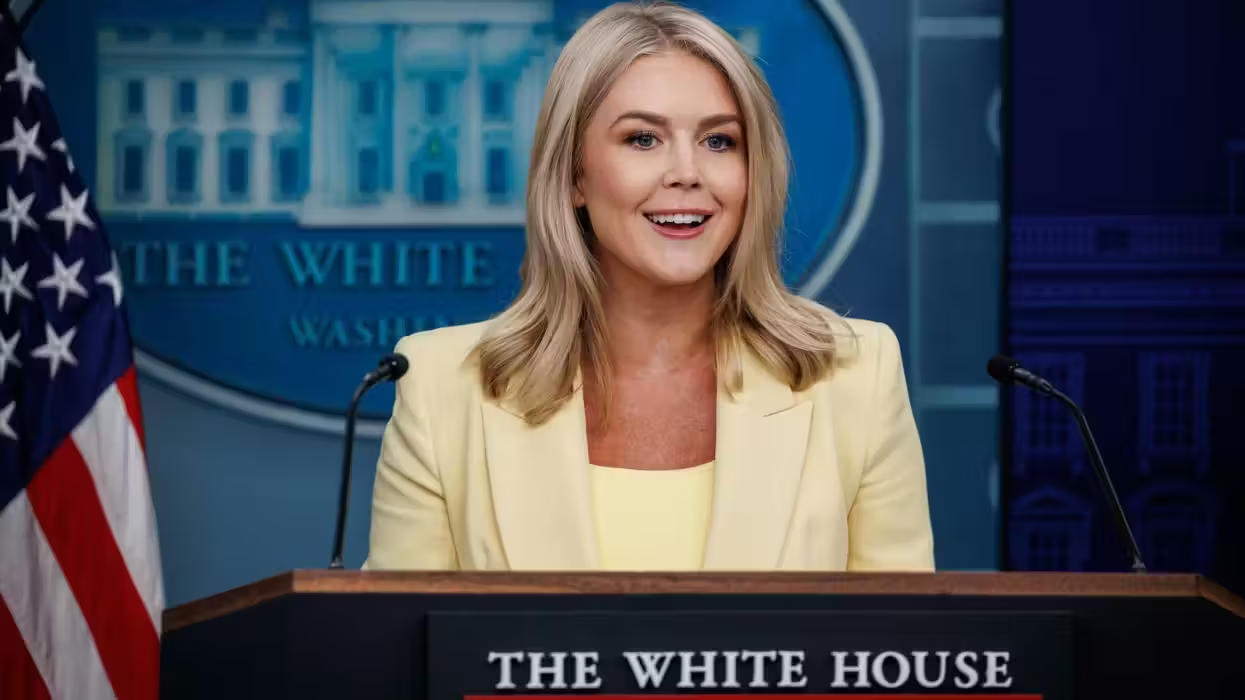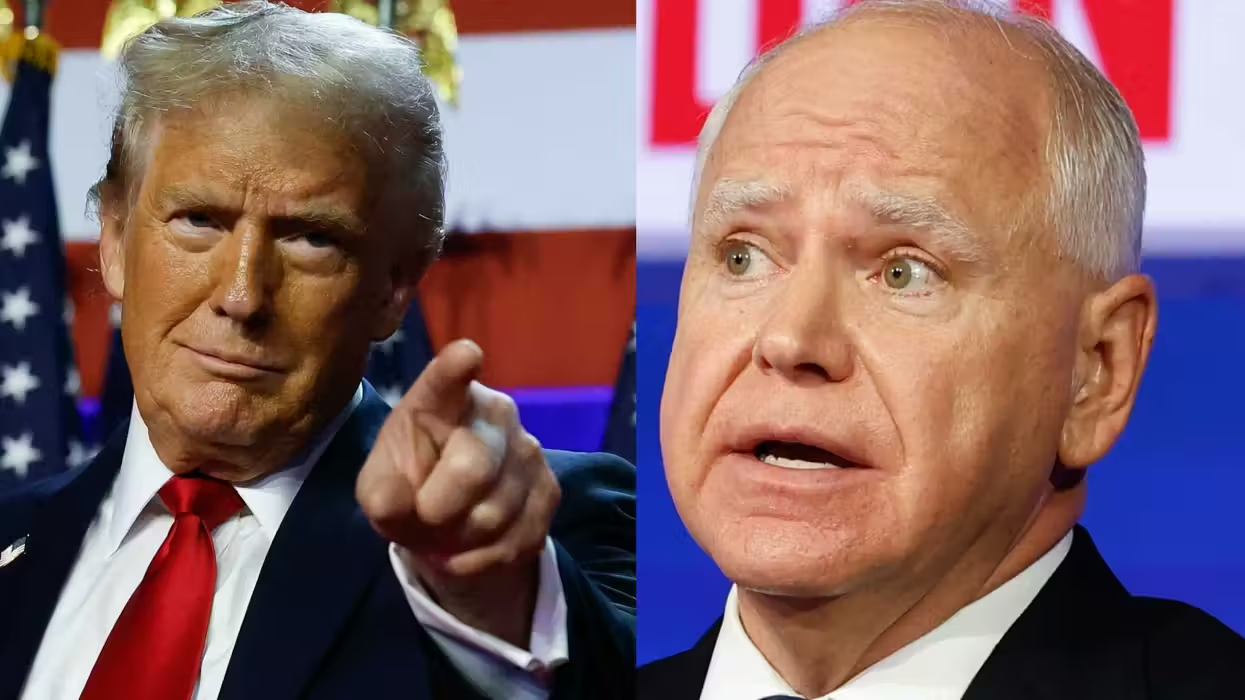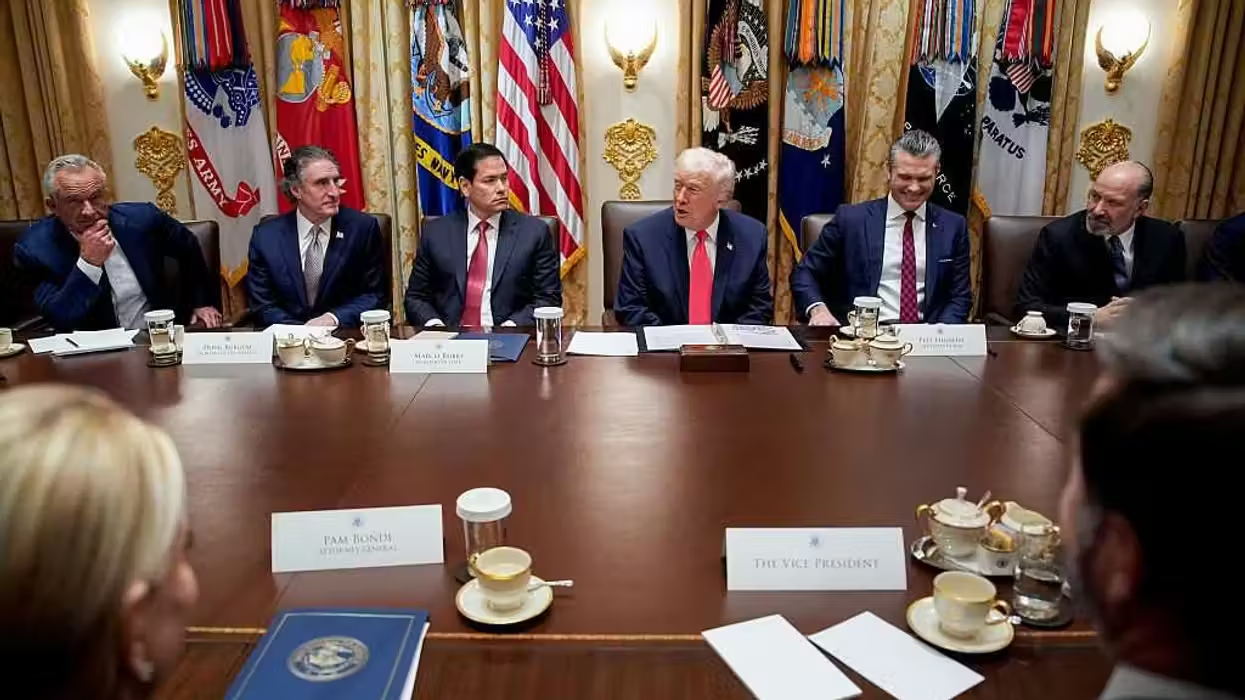
© 2025 Blaze Media LLC. All rights reserved.
He's a Christian, a Conservative and an ER Doctor: Why He's Giving Marijuana to His 11-Year-Old Daughter
August 12, 2014
"I just want my kid to survive."
Tom Minahan is a doctor in one of California's busiest emergency rooms. When it comes to drug use, he's seen it all. His experiences as a physician are — at least in part — why he was generally against marijuana. But then something changed that.
 Dr. Tom Minahan with his 11-year-old daughter Mallory, who has been on cannabis oil to control her seizures. (Image courtesy of Mallory's Hope)
Dr. Tom Minahan with his 11-year-old daughter Mallory, who has been on cannabis oil to control her seizures. (Image courtesy of Mallory's Hope)
"You work in the ER and your perspective of people changes a little bit," Minahan said. "I see drugs. I see drug overdoses all the time. I threw marijuana in the same category."
But about a year ago, the Christian father and self-identified conservative changed his mind about marijuana when it comes to medicinal use. He took "a huge leap of faith" and tried it as a last-ditch effort to help his now 11-year-old daughter — and it worked.
Now, he's advocating for more people to have access to certain forms of the drug that he's seen help his daughter when nothing else did.
'Mallory Wasn't Acting Right'
Minahan remembers all too well the day his daughter had her first seizure. She was just 14 months old.
"[My] wife calls me up ... and says Mallory wasn’t acting right," Minahan said. "She was slow, there was drool on the bed."
Unable to leave work himself, Minahan's wife brought their daughter to the ER where he was on duty. At that point, Mallory was able to walk and appeared to be functioning normally. She had an EEG, which indicated she hadn't had a seizure.
But the next week, she seized again. This time, her parents were there to witness it.
Mallory was eventually diagnosed with epilepsy and started trying various medications to help control the frequency of her seizures. They all failed. Instead, the episodes only got worse as Mallory got older.
Her parents at one point considered brain surgery for her, but Mallory wasn't a candidate for that type of treatment.
They tried putting her on a ketogenic diet, which Minahan described as "the Atkins diet on steroids." The diet has been shown to reduce the number of seizures in some patients; a smaller percentage who try it have even become seizure-free.
Being on the ketogenic diet involved trips to Johns Hopkins Hospital in Baltimore as well as very regimented eating while Mallory was at home. On one trip to Baltimore, Mallory seized at the airport, on the airplane and two more times that night.
 Mallory shows bruises she sustained as a result of a seizure. (Image courtesy of Mallory's Hope)
Mallory shows bruises she sustained as a result of a seizure. (Image courtesy of Mallory's Hope)
After one particularly bad night of seizures, Minahan said he remembers saying to God, "if she died on the next one it would be OK."
"I was not happy about it, but I was going to be OK with it. We weren't getting where we wanted," Minahan said of the frustration he felt as he tried to help his daughter improve while only seeing her condition get worse.
Two other options remained: the anti-epileptic Felbatol — and cannabis.
Minahan said that because Felbatol can cause potentially fatal side effects, he would rather go through all of the drugs his daughter had already tried a second time instead of put her on it.
Instead, he started researching cannabis, a decision he said wasn't easy, especially considering they were talking about a child who hadn't even reached her teens.
"I just started looking around and thought maybe she’d have to smoke it," Minahan said.
She didn't have to smoke it: "I looked into it further and found the oil."
He ordered some. Before trying it on his daughter, he had it tested. Then he gave a dose to Mallory.
'A Different Kid'
"Within 36 hours, she was a different kid," Minahan said.
Since starting Mallory on cannibis oil nine months ago, the 11-year-old has only suffered two seizures within the last 4 1/2 weeks. She used to have 30 to 40 a month, her father said.
She's back in school for the first time in three years and has an alertness that he hadn't seen before.
"She'll get in the car for church — usually she'd just sit there — and she looks around and says 'Good morning, how is everyone?'" Minahan recalled.
Mallory doesn't act stoned and doesn't get the "munchies" like those who smoke marijuana recreationally. Minahan noted that the oil she takes has a low amount of tetrahydrocannabinol, the compound that causes a person to get high. She's currently on the waiting list for a strain called "Charlotte's Web," which was recently named in a bipartisan congressional bill as a type that could be up for legalization because of its low amount of THC.
Minahan is not the only parent giving his child cannibis oil to treat epilepsy. A Colorado family recently reported using it on their 3-year-old. A study published last year cited 19 other parents whose children were taking cannabidiol-enriched cannabis for seizures. About 84 percent of these parents selected as candidates for the survey said they at least saw a reduction in seizure frequency while their child was on the drug.
Even though the results on Mallory's seizures are promising, Minahan said the drug can still be disconcerting at times.
"It’s just crazy. You order this stuff through people you never see, never meet and do you trust it? Who knows really what’s in it," he said, noting that they frequently get the oil independently tested before giving it to Mallory and have found a source that they feel they can trust.
Some form of regulation, he said, would give doctors and patients more confidence in what they're actually getting.
Minahan said he feels lucky he lives in California, a state where his daughter has access to this drug. But he's sharing his story now in the hopes that it might give some perspective in the debate other states might be having regarding the use of medical marijuana for this purpose.
Watch Minahan explain his perspective in this video:
'I Just Want My Kid to Survive'
As a doctor, Minahan said he's not necessarily for complete legalization of marijuana. Instead, he thinks it should be changed from a schedule-one drug — in the same class as LSD and ecstasy — to one like schedule three, which includes like Vicodin or Tylenol with codeine in it.
"Other kids in parts of country are unable to be treated with this stuff … that's sad," Minahan said.
From the perspective of scientific studies, the Epilepsy Foundation out of Colorado pointed out that there is little published evidence to medically back up what some parents say they've experienced with their children. But late last year, the Food and Drug Administration gave its approval for some studies to gain more information on the effect of cannabidiol in patients with epilepsy.
 Minahan said his daughter was changed within two days of taking her first dose of cannabis oil. (Image courtesy of Mallory's Hope)
Minahan said his daughter was changed within two days of taking her first dose of cannabis oil. (Image courtesy of Mallory's Hope)
The Epilepsy Foundation and the Epilepsy Therapy Project advocate for increased access and research of medical marijuana.
"The Epilepsy Foundation calls for an end to Drug Enforcement Administration restrictions that limit clinical trials and research into medical marijuana for epilepsy," the groups said in a statement earlier this year. "We applaud recent decisions that have allowed clinical trials of Cannabidiol oil, to begin in several states. Certain components of medical marijuana, including CBD, have shown effectiveness in animal studies, and there have been encouraging anecdotal reports from patients. But further research and unbiased clinical trials are needed to establish whether and in what forms medical marijuana is or is not effective and safe. Restrictions on the use of medical marijuana continue to stand in the way of this research."
"The Epilepsy Foundation believes that an end to seizures should not be determined by one’s zip code," the organizations said.
Even though there has been some movement, Minahan said he worries that fear of "political suicide" will prevent some lawmakers from voting in favor of a lower classification for cannabis or other measures that would give more access to those who truly needed it medically.
He also expressed concern that some are advocating for the spread of medical marijuana but without the intent of it being used for actual medicinal purposes, thus hampering the efforts of those who are more serious about it.
Jim Abrahams, a father whose son tried the ketogenic diet and was cured of his seizures, told TheBlaze he completely understands the plight of parents like the Minahans.
"Seizures aren't like setting a broken bone. The brain is a complicated organ," said Abrahams, who is the founder of the Charlie Foundation, named after his son, and the director of the film "First Do No Harm," which is about the diet. "What you start to do is evaluate risk-benefit stuff. What's the downside of trying medical marijuana? What's downside of trying ketogenic diet vs. what's upside? [You find,] there's not much of a downside. It's not like a brain surgery or multi-drug treatments."
At this point, Minahan said, "I just want my kid to survive," and he wants others to have a chance.
Read more about Minahan's perspective on the conservative forum he created on Facebook — Mallory's Hope — advocating for expanded research into the use of cannabis to treat seizures.
Want to leave a tip?
We answer to you. Help keep our content free of advertisers and big tech censorship by leaving a tip today.
Want to join the conversation?
Already a subscriber?
more stories
Sign up for the Blaze newsletter
By signing up, you agree to our Privacy Policy and Terms of Use, and agree to receive content that may sometimes include advertisements. You may opt out at any time.
Related Content
© 2025 Blaze Media LLC. All rights reserved.
Get the stories that matter most delivered directly to your inbox.
By signing up, you agree to our Privacy Policy and Terms of Use, and agree to receive content that may sometimes include advertisements. You may opt out at any time.

